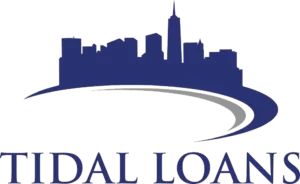Ever wondered how businesses buy huge properties like shopping centers or office buildings? It’s often through commercial mortgage loans. These loans are special, designed just for the business world. They help businesses buy, refinance, or upgrade commercial properties.
This guide will explore how commercial real estate financing works. We’ll see how it’s different from home loans and what types of properties it covers. You’ll learn about the factors that affect commercial mortgage rates and details on income property mortgages.

Key Takeaways
- Commercial mortgage loans are specifically designed for businesses to purchase or upgrade commercial properties.
- These loans differ significantly from residential mortgages, offering unique terms and requirements.
- Commercial real estate financing involves various loan types, including term loans, SBA loans, and bridge loans.
- Understanding the distinct purposes and benefits of commercial mortgage loans can help businesses leverage property equity.
- Businesses can utilize commercial mortgage loans for buying, refinancing, or expanding their commercial property assets.
Understanding Commercial Mortgage Loans
Commercial mortgage loans help businesses buy, develop, or fix up commercial properties. They are different from home loans because they look at the property’s income potential. They also have unique features like balloon payments and shorter terms.
Definition and Purpose
So, what is a commercial mortgage loan? It’s a loan for businesses to buy, develop, or fix up properties. This includes office buildings, retail spaces, or industrial areas. These loans are key for businesses wanting a physical space or to grow through real estate.
Types of Commercial Properties
Knowing the different types of commercial properties is important. This helps businesses find the right investment for their needs. Here are some examples:
- Retail Malls
- Office Buildings
- Hotels
- Industrial Warehouses
Each property type serves a specific purpose and appeals to different markets. By exploring these options, businesses can find the right fit for their goals. This ensures their real estate loans support their long-term growth.
How Commercial Mortgage Loans Differ from Residential Loans
Exploring commercial vs residential loans shows big differences in terms and structure. Residential loans help people buy homes, while commercial loans are for businesses. This affects how borrowing works.
One key difference is in loan terms. Residential loans last up to 30 years, but commercial loans are 5 to 20 years. This means commercial loans have higher monthly payments.
Interest rates and fees also vary. Commercial loans have higher rates because lenders see them as riskier. Residential loans have lower rates and fees. The high failure rate of businesses in the first five years adds to this risk.
Commercial loans are for income-generating properties like warehouses and office buildings. They usually have loan-to-value ratios of 65% to 80%. Residential loans focus on the borrower’s financial situation, not the property’s income.
The application process for commercial loans is more complex. Borrowers need a good FICO Small Business Scoring Service (SBSS) score and lots of financial documents. Commercial loans also require a 20% down payment, showing the high financial stakes.
Residential loans might only need a 3% down payment under certain conditions. But commercial loans need a much bigger down payment. Businesses should think carefully before choosing commercial financing.
Understanding the differences in commercial real estate financing is key. For those looking at direct lenders, checking out Tidal Loans FAQ can help. This knowledge can lead to better decisions and successful loans.
Who Needs a Commercial Mortgage Loan?
Commercial mortgage loans are for businesses that need a physical place. They help fund purchases or refinances of properties for business use. The Small Business Administration (SBA) often backs these loans, making them easier to get.
Lenders say the business must use at least 51% of the property. This ensures the loan is for business use, not just investment.
Businesses That Benefit from Commercial Loans
Many businesses can use commercial mortgage loans. This includes retail stores, restaurants, office buildings, and warehouses. For instance, a retail store can get a loan to buy a storefront.
This not only gives them a permanent spot but also lets them build equity. Equity is key for future financing, as property values usually go up.
Future-Proofing with Equity
Building equity in commercial properties is a big plus. It acts as a financial safety net, letting businesses use their property’s growing value. Commercial loan rules often require a debt service coverage ratio of 1.25 or more.
This ensures the business can pay its debts. By meeting these rules, businesses can get loans that help them financially in the long run.
In short, commercial mortgage loans let businesses own their space. This helps them grow and stay stable financially. They are a key part of a business’s future-proof financing plan.
Types of Commercial Mortgage Loans
Exploring commercial mortgage loans can help you make better choices. Knowing about different types can lead you to the best financial option for your business.
Traditional commercial mortgages are often the first choice for many. They have an *LTV ratio* of up to 85% and terms from 7 to 30 years. Interest rates are between 5% and 7%, making them popular for stable properties.
Government-sponsored enterprises (GSEs) like Fannie Mae and Freddie Mac are also worth considering. They offer financing with competitive terms and can cover up to 90% of the property value. With fixed rates and a minimum credit score of 660, they’re a good option for many businesses.
Asset-backed trusts are another type of commercial mortgage loan. These loans are bundled into securities sold to investors. They offer flexibility, with rates and terms that match the market.
Lastly, life insurance companies’ loans provide stability and conservatism. They hold about $471 billion in commercial real estate and prefer loans with LTV ratios between 60% and 70%. These loans are given to high-quality, stable properties, ensuring lower default rates.
- Traditional commercial mortgage: Up to 85% LTV, 7 to 30-year terms, 5%-7% interest rates.
- Government-sponsored enterprises: Competitive terms, up to 90% coverage, starting at 660 credit score.
- Asset-backed trusts: Market-aligned rates, varied terms.
- Life insurance companies’ loans: $471 billion CRE, 60%-70% LTV, lower default rates.
Businesses have many options for commercial mortgage loans. From traditional bank loans to specialized options from GSEs, asset-backed trusts, and life insurance companies, there’s something for every business.
How to Qualify for a Commercial Mortgage Loan
To get a commercial mortgage loan, you need to meet certain requirements. These can change based on the lender and the loan type. You’ll usually need a good credit score, solid financial documents, and proof your business is stable.
Credit Score Requirements
A high credit score is key for a commercial mortgage loan. It shows lenders you’re a trustworthy borrower. The minimum score needed can vary by lender.
For example, SBA 7(a) loans might ask for a 660 score. JR Capital Equipment Financing could accept a score as low as 620. Make sure your score is high enough to meet the lender’s standards.
Needed Financial Documentation
You’ll need to provide financial statements that show your business is healthy and stable. These usually include:
- Annual or quarterly income statements
- Tax returns
- Balance sheets
- Corporate documents
- Asset statements
- Leases
- Personal financial record of the business owner
Lenders also look at the debt service coverage ratio (DSCR) and rental income for commercial properties. Having complete and current financial documents helps meet the loan requirements.
The Commercial Mortgage Loan Application Process
Getting a commercial mortgage loan is a detailed process. It’s designed to make sure both the lender and borrower are ready. I’ll walk you through each step, from the beginning to the end.
The current index value of commercial property prices in the U.S. is 185.62, illustrating a gradual rise over recent years due to economic factors, housing demand, and interest rates.
Pre-Qualification Steps
The first step is pre-qualification. Here, you share basic financial and business details. You also talk about the property you want to finance or refinance. Lenders look at:
- Basic business information
- Estimated property value
- Desired loan amount
- Loan-to-value (LTV) ratio
They use this info to give a decision in principle (DIP). This shows how much they might lend, usually in a few days.
Full Application and Underwriting
After pre-qualification, you fill out a full application. This part asks for more detailed info, like:
- Financial statements and tax returns
- A comprehensive business plan
- Business projections and cash flow analysis
- A third-party property appraisal
Lenders then review these documents carefully. They check your past and future financial health. They make sure you can handle the loan.
Timeline for Approval
The approval process can take months. It includes time for document checks, underwriting, and appraisals. Quick and accurate info can speed things up. This makes the process smoother for everyone.
The Small Business Administration (SBA) partners with lenders to facilitate business loans, reducing lending risks by repaying up to 85% of the loan balance in case of default.
Common Interest Rates and Repayment Terms
When looking at commercial mortgages, it’s key to know about commercial mortgage rates and loan repayment conditions. The rates and terms can change a lot, based on the loan type and lender. Traditional mortgages usually last from 5 to 30 years and have interest rates between 5% to 7%. Lenders often ask for a 25% down payment.
Hard money loans are different. They have higher interest rates, from 10% to 20%, and shorter commercial loan terms. These loans focus more on the property’s value than the borrower’s credit. This means higher rates. Hard money lenders can provide funds quickly, but it’s a pricey option.
Commercial bridge loans offer short-term solutions. They have terms from six months to three years. These loans have interest rates 50 to 200 basis points higher than traditional mortgages. Getting a bank approval for these loans can take 30 to 60 days, but they’re flexible for short-term needs.
SBA loans have their own benefits. SBA 7(a) loans have amortization periods from 10 to 25 years, with interest rates between 5% to 8.75%. They require a 10% owner investment and a credit score of at least 680. SBA 504 loans allow up to 90% financing of the purchase price, with terms of 20 years for real estate purchases and interest rates between 3.5% and 5%.
Prime borrowers with credit scores of 700 or higher can get the best commercial mortgage rates. These rates are usually 1 to 2.5% higher than residential mortgages. Loan-to-Value ratios for these mortgages can reach up to 80%, making them a good choice for many businesses looking to invest in real estate long-term.
Comparing Commercial Mortgage Lenders
When looking at commercial mortgage lenders, there are many things to consider. You should check interest rates, loan-to-value ratios, and the lender’s history. Each lender offers different financing options, so it’s important to know what they provide.
Potential lenders include traditional banks, insurance companies, asset-backed trusts, and government agencies. Each has its own benefits. It’s key to do a thorough evaluation of each lender.
Traditional banks offer stability and a variety of loans. But, their rates might be higher than others. Insurance companies, on the other hand, have competitive rates and long-term loans. They’re great for big commercial projects.
Asset-backed trusts offer more flexibility in terms. They focus on the property’s income potential, not your credit history. Government agencies like Fannie Mae and Freddie Mac also have good terms. But, they have stricter qualification rules.
Understanding and comparing these financing options is crucial for your investment’s success. Remember, careful lender evaluations are essential to get the best terms for your commercial mortgage.
Alternatives to Commercial Mortgage Loans
When traditional commercial mortgage loans don’t fit your needs, there are other options. These alternatives offer different benefits based on your situation and finances.
Commercial Bridge Loans
Bridge loans are great for businesses needing quick cash. They are short-term loans that are usually interest-only. This means you get money fast but pay more in interest.
Bridge loans are perfect when you’re waiting for permanent funding. They help keep your business running or let you make big purchases quickly.
Commercial Hard Money Loans
Hard money lending is good for businesses that can’t get bank loans. These loans use the value of your property, not your credit score. They have high interest rates and short terms but are fast and easy to get.
Hard money loans can lend up to 70% of your property’s value. This gives you a lot of freedom for real estate or big business projects.
SBA Loans
SBA loans for business are backed by the government. The SBA 7(a) loan is common and can be used for many things like buying property or refinancing debt. It has low interest rates and long repayment times, but it takes a while to get.
The SBA 504 loan is for buying big assets like office buildings. It helps your business grow with good terms. These loans can fund up to $5 million, making them great for big investments.
Looking into bridge loans, hard money lending, and SBA loans helps you find the right financial support. This ensures you get the best help for your business needs and goals.
Understanding Loan-to-Value Ratios (LTV)
In commercial real estate, the loan-to-value (LTV) ratio is key. It shows how much of the property’s value the loan covers. This ratio affects the loan terms and rates a business can get.
Commercial LTV ratios usually range from 65% to 80%. For example, multifamily properties often have a 73% LTV. Offices, industrial sites, and self-storage have a 68% LTV. Bridge loans, for short-term needs, have an 80% LTV, while construction loans are about 75%.
Higher LTV ratios mean higher risks. Lenders often want at least a 20% down payment. This helps reduce financial risks. Borrowers with lower LTVs get better rates and terms.
Unlike home loans, commercial deals don’t need Private Mortgage Insurance (PMI). But, a good LTV ratio is usually 80% or less. Higher ratios are risky and might lead to higher costs or loan denial. Each lender has its own LTV criteria, making it crucial for borrowers to understand these rules.
Key Benefits of Commercial Real Estate Financing
Investing in commercial real estate through loans offers many advantages for businesses. One key benefit is building equity over time. As you pay off the loan, your property’s value grows, leading to higher returns than residential properties.
Another perk is the chance to earn rental income. Properties like office buildings and retail spaces can provide steady cash flow. This is crucial for business operations. Commercial loans also allow businesses to access larger amounts for significant projects.
Locking in property costs is another benefit. It protects against market changes and aids in long-term planning. Businesses can also enjoy tax benefits. Interest payments on commercial loans and other expenses may be tax-deductible, improving the bottom line.
Commercial real estate loans offer flexible terms and interest rates. Options range from five to thirty years, providing financial stability. Terms can be customized to fit unique financial needs.
Lastly, commercial real estate can offer higher returns and diversify investment portfolios. Taking on commercial projects without relying only on personal capital is a major advantage of commercial mortgages.
Costs and Fees Associated with Commercial Mortgage Loans
Starting a commercial mortgage journey means knowing all the costs. *Mortgage loan fees* and *financing expenses* can add up quickly. Here’s a look at what you might face:
Lender’s processing/underwriting fees: These can be between $500 and $2500. They cover all the steps in the process.
Credit checks: These cost between $100 and $1000. They might seem small, but they add up.
Appraisal fees: These can vary a lot, from $1000 to $10,000. It depends on the property’s size, location, and type.
Environmental report (Phase 1): This due diligence costs between $2000 and $6000.
Inspection fees: These are usually around $0.03 to $0.10 per square foot of property.
Title search and title insurance policy costs: These can range from $2500 to $15,000. It depends on how complex the title is.
Mortgage Registration/Recording Tax: This varies by location but adds to your *commercial loan cost*.
Lender’s origination points: These are usually between 0% and 2% of the loan amount. They add a lot to the *mortgage loan fees*.
Commercial mortgage broker’s fees: These are usually around 1-1.5% for small-balance mortgages. But they can vary.
Legal fees: Both lender’s and borrower’s legal fees are variable. They are necessary for compliance and protecting interests.
Post-closing liquidity reserves: Agencies might require reserves equal to 9 months of loan payments. This is to ensure financial stability after closing.
Other fees: There are many other miscellaneous charges that add to the *financing expenses*.
Knowing these fees helps with better financial planning. It also helps in negotiating the best terms for your commercial mortgage. By understanding these costs, you can get a more accurate total *commercial loan cost*. This ensures your investment fits your financial situation.
Conclusion
Getting a commercial mortgage loan can help your business grow and succeed. This guide covered the basics, from loan types to managing costs. With this knowledge, you can make smart choices for your business.
Starting this journey means understanding commercial mortgages well. You need a good credit score, usually 680 or higher. Also, keep your Debt-Service Coverage Ratio (DSCR) above 1.25. And, be ready to invest 20-30% for a down payment.
You should also show your financial health with detailed statements. This will help you get better loan terms.
Besides traditional loans, there are other options like bridge loans and SBA loans. These offer different terms and conditions. Look at these options to find the best fit for your business.
When choosing a lender, consider their reputation and rates. This will help you make a wise decision.
For more help or questions, contact Tidal Loans LLC at 832-757-1262 or info@tidalloans.com. Knowing about commercial mortgage loans can help you grow your business.


